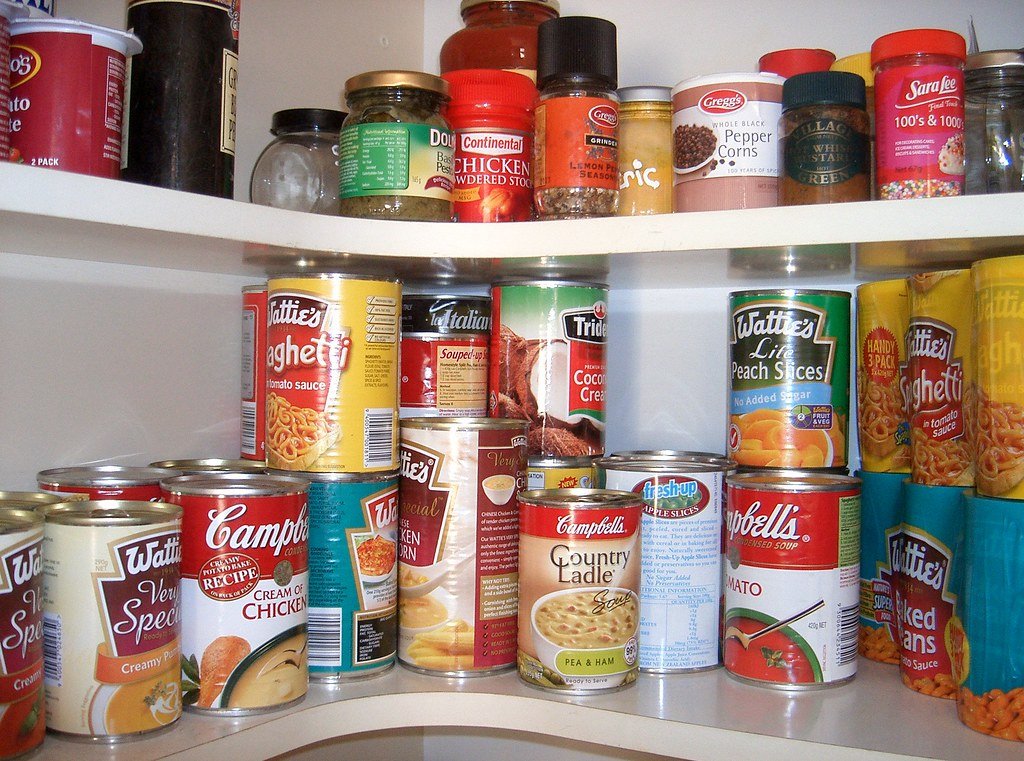Now Reading: How to Store Eggs Without Refrigeration
-
01
How to Store Eggs Without Refrigeration

How to Store Eggs Without Refrigeration
As the sun bathes the vibrant meadows and you tiptoe through the bustling farmers market, filling your basket with farm-fresh produce, a carton of delicate eggs catches your eye. With visions of golden omelets and fluffy soufflés dancing in your mind, you realize your predicament: a long journey ahead that boasts neither a fridge nor the comfort of modern-day refrigeration. Fear not, for centuries ingenious minds have devised clever methods to store eggs, preserving their deliciousness unencumbered by chilly temperatures. Join us on this adventure of time-honored traditions and age-old wisdom as we unveil the secrets of storing eggs without the confines of refrigeration. Prepare yourself to embark on a journey where simplicity reigns supreme, and the humble egg becomes a testament to human ingenuity.
Table of Contents
- Storing Eggs Without Refrigeration: Preserving Freshness and Quality
- The Ideal Environment: Factors to Consider for Egg Storage
- Practical and Innovative Alternatives to Refrigeration
- Proven Methods for Extending Egg Shelf Life
- Tips and Precautions: Maintaining Egg Safety Without Cooling
- Q&A
- Wrapping Up

Storing Eggs Without Refrigeration: Preserving Freshness and Quality
Preserving Freshness and Quality
When it comes to storing eggs, refrigeration is often the go-to method. However, did you know that there are alternative ways to keep your eggs fresh and maintain their quality without relying on the traditional cold environment? Here, we explore some ingenious techniques that allow you to store eggs without refrigeration, ensuring their freshness for an extended period.
1. The Water Glass Method: This age-old technique involves submerging eggs in a solution to preserve them. Simply take a clean, wide-mouthed jar and fill it three-quarters full with water glass solution, which can be easily obtained from most grocery stores. Gently place the eggs in the solution, ensuring they are completely covered. Store the jar in a cool, dark place, and voila! Your eggs can stay fresh for up to six months.
2. Coating with Mineral Oil: Another effective technique is to coat the eggs with a thin layer of mineral oil. This provides a protective seal, preventing air and moisture from entering the shell and reducing the risk of spoilage. To do this, simply dip a lint-free cloth in mineral oil and gently rub it onto the eggs, ensuring an even coating. Allow the eggs to dry completely before storing them in a cool, dry place away from sunlight.
3. Salt-Packing Method: This method not only keeps eggs fresh but also enhances their flavors. Start by filling a container with a layer of salt, then place the eggs on top, ensuring they do not touch each other. Gently cover the eggs with more salt until they are completely submerged. Store the container in a cool, dry place, and the salt will help to absorb moisture, preserving the eggs’ freshness and taste for several weeks.
These innovative methods offer unique ways to store eggs without refrigeration while maintaining their freshness and quality. So, the next time you find yourself needing to store eggs without access to a refrigerator, don’t fret! Give these methods a try and enjoy eggs that stay fresh for longer periods, allowing you to savor their deliciousness whenever you please.

The Ideal Environment: Factors to Consider for Egg Storage
Factors to Consider for Egg Storage:
When it comes to storing eggs, creating the ideal environment is essential to maintain their freshness and quality. Here are some factors to consider:
- Temperature: Eggs should be stored at a consistent temperature between 35°F and 40°F (1.6°C and 4.4°C) to prevent spoilage. Avoid storing them in the refrigerator door as it is exposed to frequent temperature changes.
- Humidity: Maintaining the right humidity level is crucial in egg storage. Aim for a relative humidity of around 70-80% to prevent moisture loss, which can lead to a decline in the egg’s quality.
- Airflow: Proper ventilation is necessary to keep eggs fresh. Ensure that the storage area allows for sufficient airflow, preventing any build-up of odors or gases that could impact the eggs’ flavor.
- Position: Laying eggs flat is the ideal position for storage to help maintain their shape and prevent the yolk from touching the shell, reducing the risk of contamination.
- Container: Choosing the right container for egg storage is crucial. Consider using an egg carton or an airtight container that provides protection and prevents the risk of breakage.
By considering these factors, you can create an ideal environment for storing eggs, ensuring their freshness and prolonging their shelf life. This way, you can enjoy delicious, high-quality eggs whenever you need them!
Practical and Innovative Alternatives to Refrigeration
When it comes to keeping our food fresh, refrigeration has become a staple in modern households. However, there are times when refrigeration is not available or practical. In such situations, it’s essential to explore alternative methods that can help us preserve our food for longer periods. Here are a few inventive ways that can keep your food cool and prevent spoilage, without the need for traditional refrigeration:
- Zeolite Coolers: These innovative cooling devices work on the principle of evaporation. By using a combination of zeolite, water, and heat, they create a cooling effect that can chill perishable items. Zeolite coolers are portable, energy-efficient, and ideal for camping or traveling.
- Pot-in-Pot Cooling: An age-old technique, pot-in-pot cooling involves placing an earthenware pot inside a larger pot and filling the gap between them with cool sand or water. As the water evaporates, it lowers the temperature inside, keeping the inner pot cool and fresh. This method is widely used in arid regions and can be a lifesaver in areas without electricity.
- Root Cellars: Root cellars have been used for centuries and are still popular today. These underground storage spaces offer a cool and consistent temperature, making them perfect for storing fruits, vegetables, and even dairy products. With proper ventilation and insulation, root cellars can effectively extend the shelf life of your perishables.
Exploring not only saves energy but also expands our knowledge of sustainable living. Whether you are seeking off-grid solutions or simply looking to reduce your carbon footprint, these alternatives can inspire creativity and provide valuable insights into preserving food in unconventional ways.
Proven Methods for Extending Egg Shelf Life
When it comes to preserving eggs and extending their shelf life, several proven methods can be employed. These techniques not only ensure that your eggs stay fresh for longer but also maintain their quality and taste. Here are a few effective ways to maximize the lifespan of your eggs:
- Refrigeration: One of the simplest and most essential steps in extending egg shelf life is proper refrigeration. Eggs should always be stored at a temperature below 40°F (4°C) to slow down bacterial growth and prevent spoilage. It is advisable to place the eggs in the main body of the refrigerator and not on the door where temperature fluctuates more.
- Inspection: Regularly inspect your eggs to identify any cracks or damage. Cracked eggs should be consumed as soon as possible, as they are more susceptible to contamination. If you notice any dirt or feathers on the eggshell, gently remove them using a dry cloth or paper towel. Avoid washing eggs as it may remove the natural protective coating.
- Candling: Candling eggs is a technique used to assess their freshness. Hold a flashlight or a candle behind an egg in a dark room to examine its contents. You should be able to see an air cell and determine whether the yolk and white are intact. Discard any eggs with abnormal or cloudy appearances as they may no longer be fresh.
- Storage: Eggs should always be stored with the pointed end down. This helps to maintain the air cell at the top of the egg for longer, delaying moisture loss and preserving freshness. Additionally, store eggs away from strong-smelling foods in the refrigerator to prevent them from absorbing odors.
By following these tried and tested methods, you can significantly prolong the shelf life of your eggs, ensuring that they remain safe to consume and enjoyable to eat for an extended period of time.
Tips and Precautions: Maintaining Egg Safety Without Cooling
When it comes to eggs, ensuring their safety without refrigeration is important to prevent any potential risks. Here are a few tips and precautions to help you maintain egg safety without relying on cooling:
- Choose fresh and clean eggs: Always purchase eggs from a reliable source and make sure they are free from cracks or dirt. Fresh eggs have a thicker egg white and sit firmly in the shell.
- Store in a cool and dry place: While refrigeration may not be an option, find a spot in your kitchen that remains consistently cool and doesn’t suffer from excessive heat or humidity.
- Turn the eggs regularly: To help maintain their quality, gently turn the eggs upside down every few days. This helps prevent the yolk from sticking to the shell, ensuring longer freshness.
- Utilize the water test: If you’re unsure about an egg’s freshness, place it in a bowl of water. If it sinks to the bottom, it is still fresh. If it floats, it’s best to discard it.
- Cook eggs thoroughly: To eliminate any potential bacteria, it is crucial to cook eggs thoroughly. Ensure both the yolk and white are fully cooked until solid, especially when preparing dishes like scrambled eggs or omelets.
- Do not leave cooked eggs at room temperature: Once eggs are cooked, consume them promptly or refrigerate them. Leaving cooked eggs at room temperature can increase the risk of bacterial growth.
Remember, maintaining egg safety without cooling requires careful attention to freshness, storage conditions, and cooking practices. Following these tips and precautions will help you enjoy eggs without compromising your well-being.
Q&A
Can eggs be stored without refrigeration?
Yes, eggs can be stored without refrigeration if they are stored properly and under the right conditions.
What is the best way to store eggs without refrigeration?
The best way to store eggs without refrigeration is by keeping them in a cool, dry place, away from direct sunlight and extreme temperatures.
How long can eggs be stored without refrigeration?
If stored correctly, eggs can be kept for up to one month without refrigeration, but it’s recommended to consume them as soon as possible for maximum freshness.
What should I do to store eggs without refrigeration?
To store eggs without refrigeration, you should first collect fresh eggs that are clean and have no cracks. Then, place them in a container or carton with the pointed side down to prevent the yolk from moving and the air cell from expanding.
Can I store eggs with other food items?
It is generally best to store eggs separately from other food items to avoid potential contamination from strong odors. However, you can store eggs in a cool cellar or pantry as long as you ensure they are not in direct contact with other food.
How can I check if an egg is still good for consumption?
To check if an egg is still good for consumption, the float test can be utilized. Fill a bowl with water and gently place the egg in it. If it sinks to the bottom and lays flat, it is still fresh. If it stands upright on the bottom or floats, it is best to discard it.
Is it safe to eat eggs stored without refrigeration?
As long as the eggs have been stored properly and are not showing any signs of spoilage, it is safe to consume eggs stored without refrigeration. However, it’s always important to trust your senses and discard any eggs that have an off smell or appearance.
Wrapping Up
As we reach the end of this egg-cellent journey, we’ve delved into the ancient artform of egg preservation, banishing the shackles of refrigeration in favor of more rustic practices. Whether you find yourself deep in the heart of the countryside or seeking sustainability in an urban jungle, we’ve equipped you with the knowledge and confidence to store your precious eggs without relying on modern technology.
Remember, ancient civilizations were perfectly capable of preserving eggs for extended periods, and with a touch of creativity, you too can harness their wisdom. From coating them in natural substances like oil or clay, to transforming humble cardboard into ingenious storage compartments, the possibilities truly are endless.
So, the next time you stumble upon a secret stockpile of eggs that rivals that of any barnyard hen, fear not! With our invaluable tips and tricks, you can confidently venture on a journey of egg preservation that not only pays homage to our ancestors but also simplifies your life in the most delightful way.
As we bid farewell to refrigeration, we encourage you to embrace the charm and resilience of our ancestors. Embrace the fragility of the eggshell and find solace in the remarkable versatility it offers. Let us embark on a return to the primitive yet ingenious ways of storing eggs, forming a bond between past traditions and modern ingenuity.
Remember, the realm of storing eggs without refrigeration is not solely an exercise in functionality, but a testament to our innovation and adaptability as a species. Let your imagination run wild, as you explore the possibilities offered by nature, history, and creative problem-solving.
So dear reader, go forth and amaze the world with your newfound knowledge. Share these practical techniques with friends, family, and fellow egg enthusiasts. And always remember, even in the absence of refrigerators, you hold the power to preserve the freshness and deliciousness of eggs for days, weeks, or even months – a true testament to our resourcefulness.
With that, we conclude our quest to eradicate the tyranny of refrigeration and embrace the ancient secrets of egg preservation. Let your eggs roam free from the clutches of the refrigerator, and let your culinary adventures flourish as you unlock the hidden wonders of this humble, yet extraordinary, oval treat. Happy egg storing!
As an affiliate, my content may feature links to products I personally use and recommend. By taking action, like subscribing or making a purchase, you’ll be supporting my work and fueling my taco cravings at the same time. Win-win, right?
Want to read more? Check out our Affiliate Disclosure page.





